For a catalog of more than SOO titles of Scott Harm's talks on tape (or CD), contact Saint Joseph Communications in West Covina, California (1-800-S26-21S1; www.saintjoe.com)
Contents
CHAPTER 1
CHAPTER 2
CHAPTER 3
CHAPTER 4
CHAPTER 5
CHAPTER 6
CHAPTER 7
CHAPTER 8
CHAPTER 9
CHAPTER 10
CHAPTER 11
CHAPTER 12
APPENDIX I
APPENDIX II
Chapter 1

A Personal Prelude
How I wish your bearing and conversation were such that, on seeing or hearing you, people would say: This man reads the life of Jesus Christ.
THE WAY, NO. 2
I wasn't yet a Catholic wannabe. I was scared to be.
A Presbyterian minister, I had taken an extended sabbatical because I needed the time to study, pray, and ponder. Over the course of several yearsand much against my deeply Calvinist and evangelical formationI had been reading my way to a Catholic way of thinking. The more deeply I studied Scripture, theology, and historyand the more intensely I prayedthe more inexorably my mind was drawn to Catholicism.
Yet most of my experience of Catholic faith came from books. I had spent all of my post-teenage years in predominantly (and ardently) Protestant environmentsfirst as a student at a small, private college, then at a renowned evangelical seminary, and then as pastor and teacher in some small denominational churches and schools. In all these places, I knew fond fellowship, inspiring leadership, and fervent worship.
On the other hand, my limited exposure to self-identified Catholicsoutside of bookshad been less than edifying. It came mostly in my teen years, and mostly from kids who were as delinquent as I had been before I accepted Jesus Christ as my Lord and Savior.
Now I was an adult facing an adult crisis. I was a devout Protestant and an ordained minister who found the Catholic arguments more than persuasiveI found them compelling. So I was struggling to choose between all that I loved about my Protestant past and everything I was coming to understand about the Catholic faith. In the evangelicals I knew, I found a deep devotion to Jesus Christ a humble ease in the ways of prayer an astonishing work ethic a zeal for Christianizing culture and a passionate interest in the Scriptures. This last quality was supremely important to me as a preacher of the Word of God and a young biblical theologian. In Catholic doctrine, however, I found an overwhelming coherence, authenticity, and power.
The Bible had brought me to this crisis. At first I had wanted to understand the covenant theology of the first Protestant reformers. My research led me to discover that they, especially John Calvin and Martin Luther, were much more Catholic in their doctrine than were their modern descendants. Calvin and Luther led me to particular Scriptures regarding sacraments, church hierarchy and authority, and even Marian doctrinebut just as importantly, they led me to the Church Fathers, those most ancient commentators on Scripture. And it was there, in the writings of the early fathers, that I ran smack up against a church I could only recognize as Catholic. It was liturgical, hierarchical, sacramental. It was Catholic, and yet it held all that I loved about the Reformation tradition too: a deep devotion to Jesus, a spontaneous life of prayer, a zeal to transform the culture, and, of course, a burning love for Scripture.
Still, that Church was real to me only in the dusty books I read. Where, I wanted to know, were the ordinary Catholic believers who lived this way?
Apparently, they were waiting for me in Milwaukee.
Common Ground
I arrived at Marquette University for graduate studies in theology with high hopes but low expectations. But soon I encountered grace upon grace. I met a kind and brilliant pastor who was willing to talk theology with me until the wee hours. He told me of his upbringing in a Polish-American home where family members customarily greeted one another with phrases from the Scriptures. But, I told myself, he was hardly an ordinary Catholic. He held a doctorate from a Roman university; he had served time as a Vatican official; and everyone whispered (rightly, it turns out) that he was on track to become a bishop. Then I started to meet other Catholicsone a political philosopher, another a dentistwho showed the same qualities. The thing that most impressed me was that they both carried small Bibles in their pockets. At odd moments during the day, I might catch these men sitting in church reading the Scriptures. If I asked them to help me understand a point of doctrine, they would pull out the little book for backup. I thought to myself: These are men who read the life of Jesus Christand read it for all it's worth.
I mentioned to my priest friend that I had met a couple of guys who always carried the New Testament with them and who really seemed to know it.
He replied, Oh, they must be Opus Dei.
Opus Dei: I knew enough Latin to know that it meant the Work of God or God's Work. Almost immediately, when I heard Father's words, Opus Dei became for me a beacona lighthouse that promised the end of my long voyage, a first glimpse of a land I'd encountered only in books. It's not that the land was too small to be seen; nor was Opus Dei the whole of the land, for the Catholic Church is vaster than anything my denominational experience had prepared me for, and there were then (as there are now) so many other great institutions and movements in the Church. But for many reasons, Opus Dei was someplace where I could begin to feel at home.
What were those reasons?
First and foremost was its members' apparent devotion to the Bible.
Second was its warm ecumenism. Opus Dei was the first Catholic institution to welcome non-Catholics to cooperate in its apostolic labors.
Third was how upright the lives of members were.
Fourth was how ordinary their lives were. They were not theologiansthey were dentists, engineers, journalists but they were talking and living a theology I found attractive.
Fifth, they espoused a holy ambitiona devout work ethic.
Sixth, they practiced hospitality and gave their attention generously to my many questions.

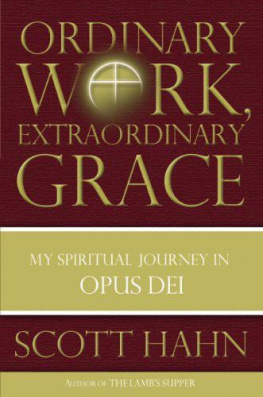
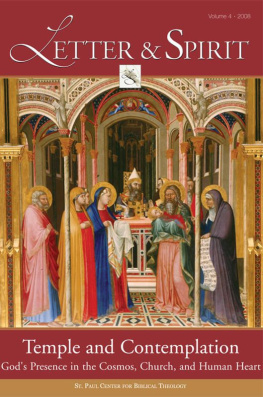
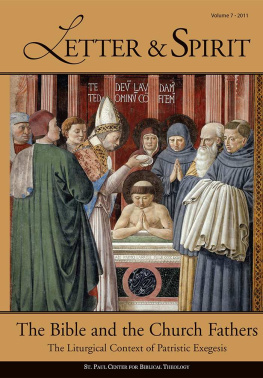
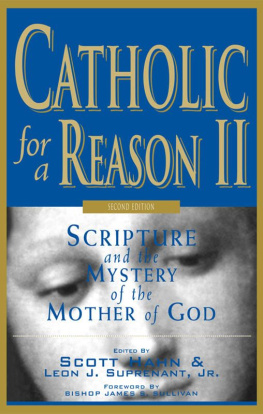
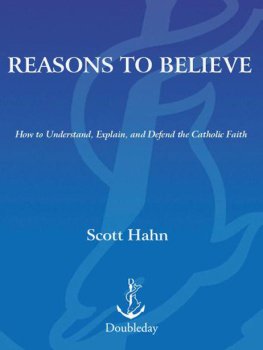
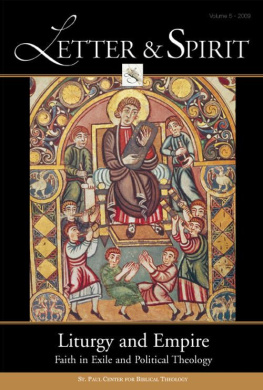
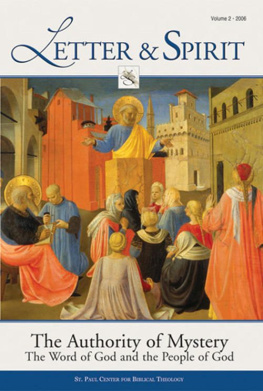
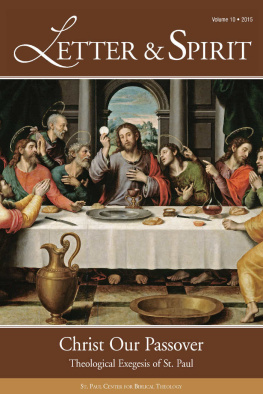
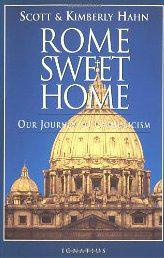

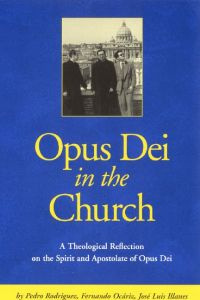
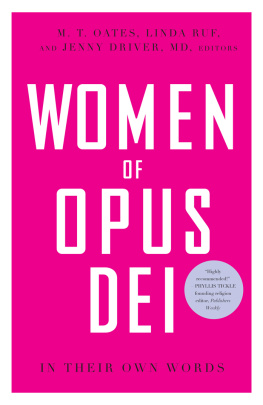
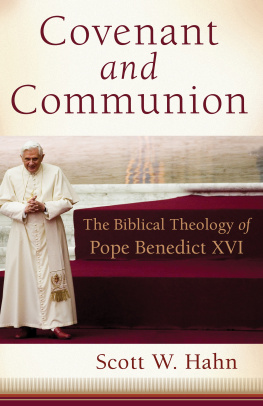
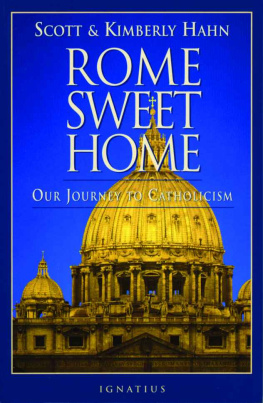
![Scott Hahn [Inconnu(e)] - Ordinary Work, Extraordinary Grace: My Spiritual Journey in Opus Dei](/uploads/posts/book/134758/thumbs/scott-hahn-inconnu-e-ordinary-work.jpg)
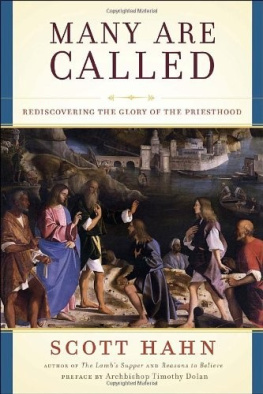


 A Personal Prelude
A Personal Prelude